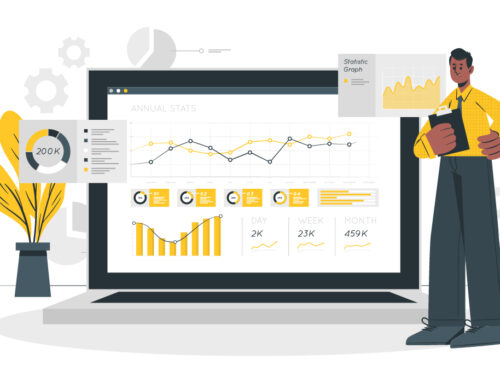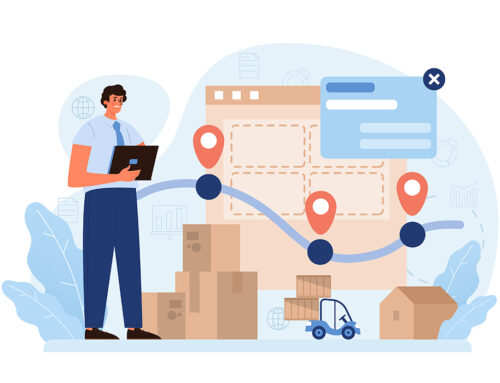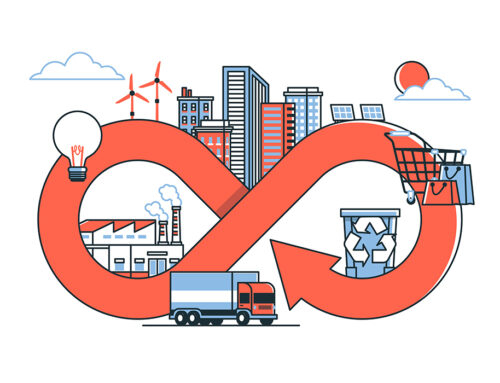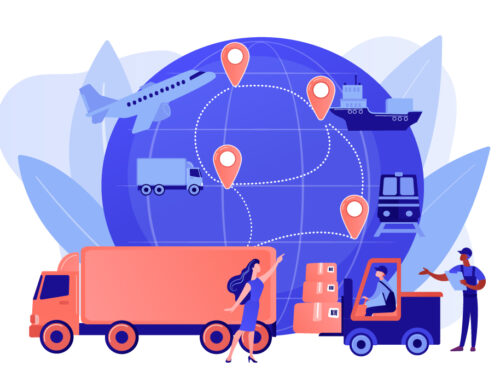The Brexit transition period has ended on the 31st of December, 2020 — over four years since the majority in the UK voted to exit the European Union. Now, after 47 years of political and economical alliance, the UK and the EU have officially split and both parties have begun a new chapter, marked by a historic trade deal that will impact a variety of industries, including automotive, manufacturing, data, services, and logistics.
Author Radiana Pit | Copperberg

The EU – UK Trade and Cooperation Agreement (TCA)
As the UK left the EU Customs Union and Single Market on the last night of December 2020, a new trade deal was provisionally applied on the 1st of January, 2021 — the EU — UK Trade and Cooperation Agreement (TCA).
Agreeing on zero tariffs and quotas, the 1246-page deal encourages goods trade between the UK and the EU. While that brings solace to most companies, the truth is that businesses must now prepare to face a new wave of disruption and uncertainty. And this is less than ideal, especially after the damage caused by the COVID-19 pandemic; having to face Brexit-related hurdles can be a disheartening hit for many businesses that are still scraping by.
Although the goods trade will remain free of tariffs and quotas, the items moving between the UK and the EU will be subject to extensive customs, controls, and additional bureaucracy that will put a strain on organizations and force supply chains to adjust to a new reality. But how exactly is the TCA perceived in the industry sectors that must swiftly adapt to the new mandatory changes?
Mostly good news for carmakers
UK carmakers and the European Automobile Manufacturers Association (ACEA) have welcomed the new deal. After all, in the event of no deal, carmakers would’ve faced 10% tariffs on exports and imports. For them, the TCA is a huge relief — but it still involves major implications and costs such as customs declarations, certification costs, rules of origin audits, and so on.
Despite the regulatory burdens which are poised to slow down just-in-time delivery, carmakers are happy that there is full bilateral cumulation that allows both UK and EU parts to count as local content and avoid tariffs.
Supply chain nightmares for manufacturers
The TCA facilitates frictionless trade for manufacturers — but it also facilitates supply chain disruption, which is the last thing manufacturers need as they struggle to rebuild their supply chains which have already been damaged by the pandemic.
The trade deal doesn’t include a mutual recognition agreement or MRA, which means that manufacturers will have to obtain product approvals from regulators in both markets and, if UK and EU specifications differ, they might even have to run separate production processes. This adds extra costs and paperwork that will cause delays in shipments, negatively impacting modern manufacturers who rely heavily upon fast supply chains.
Waiting for the adequacy status on data protection
The UK and the EU haven’t reached an adequate decision to protect data transfers and keep data flowing between them. As such, the transition period in this regard has been extended. This is an interim solution that safeguards data flows until the UK will be awarded an adequacy status and exit the EU’s data protection regime.
For the time being, data will continue to be exported from the EU to the UK without additional regulations. While EU enterprises that process data in the UK can breathe a sigh of relief, UK-based organizations should start collaborating with their EU-based counterparts for cross-border transfer arrangements.
Limited access to EU clients for service provision companies
With services making up around 80% of the UK economy, it’s fair to say that the UK is a services economy. Moreover, its largest export market is the EU. And, although the services deal struck by the two parties supports cross-border services trade in theory, things are a bit different in practice.
The lack of automatic recognition of professional qualifications will make service providers jump through bureaucratic hoops to earn the right to offer their services to other states in the EU. Likewise, the business travel restrictions that vary based on service type and country minimizes the benefits provided by the TCA.
The provisions included in the trade deal don’t go too much beyond the existing EU practices and, considering the new restrictions and the end of mutual recognition of professional qualifications, it’s no wonder that service organizations are disappointed.
After leaving the EU Single Market, the extent to which UK-based organizations can service their EU clients has been limited. In the future, some companies may have to apply to specific EU countries for permission to operate within their borders, although there are still hopes that an equivalence decision will be reached in the future.
The logistics sector accepts the Brexit deal
Although UK drivers will no longer be able to do unlimited trips between EU countries, some logistics companies have reacted with optimism to the new deal. According to Elizabeth de Jong, the policy director of Logistics UK, the mere presence of a deal is great news for the UK economy because “it removes the risk of tariffs being placed on almost every item imported from the EU, which would have raised prices and slowed the rate of economic growth.”
She also said that “it looks as though HGVs will continue to have access to the EU market, and aircraft will still be permitted to fly to and from the EU, which safeguards the UK’s highly interconnected supply chains and protects the jobs of those charged with keeping the country stocked with the goods it needs.”
Although this is great news, the new trading conditions, travel restrictions, and the introduction of customs declarations and additional checks are putting pressure on logistics firms to prioritize paperwork in order to avoid delays.
The same pressure applies to businesses in other sectors as well. Many enterprises from different sectors are mutually dependent and although some may be more positive about the deal than others, they all experience degrees of uncertainty, bureaucracy, and disruption in a new reality that is still being shaped by the pandemic.






























